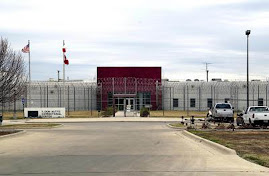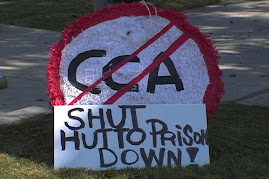Commentary By Raul Reyes
This country's immigration detention system has been a stain on the American fabric. The good news: The stain may soon begin to fade.
Immigration and Customs Enforcement (ICE) Assistant Secretary John Morton recently announced plans to reform the system that houses more than 30,000 people on any given day. The agency wants to go from a jail-oriented approach — think prisons — to one designed to humanely house people until their status is settled.
The T. Don Hutto center in Taylor, Texas, has been a poster child for a broken system. Built as a state prison, Hutto was used as a family detention center. Children lived behind barbed wire, wore prison uniforms and received an hour of school a day. The American Civil Liberties Union filed a lawsuit against the government on their behalf, and conditions improved once a settlement was reached in 2007. ICE's Morton said that effective immediately, no more families will be sent to Hutto.
Of course ICE could — and should — do more. Detainee facilities that violate agency standards face no penalties, echoing a July decision by the Department of Homeland Security that such standards are not legally enforceable. Without penalties, standards are mere goals that can be easily disregarded. Detainees are the only ones who stand to pay.
Repeated studies have documented poor conditions, ranging from a lack of due process to detainee abuses. Fortunately, an ICE pilot program is looking at alternatives to detention, such as electronic monitoring that includes reporting requirements and curfews. According to agency statistics, the program has resulted in a 99% appearance rate at immigration hearings and a 91% compliance with removal orders in the 12 test cities. An expansion seems like a no-brainer.
ICE's small steps are a good start toward fixing the detention system, which is as dysfunctional as our immigration system. And no, this doesn't mean opening up our borders, as the anti-immigrant crowd might fear. "We are going to continue to detain people on a large scale," ICE's Morton noted. As strategy, though, continued and aggressive enforcement could give the Obama administration the leverage it needs to sell comprehensive reform to a wary public next year.
With Homeland Security Secretary Janet Napolitano on the job for all of eight months now, it's only fair to give her more time to assess what's needed to enforce our immigration laws. Let's hope the former Arizona governor applies her knowledge of the border to the compassionate fabric of this great country.
Oh, and maybe she'll get that stain out after all.
Raul Reyes is an attorney in New York and a member of USA TODAY's board of contributors.
Friday, August 21, 2009
USA Today, Raul Reyes: A kindler gentler immigration system?
A kinder, gentler immigration system?








